Trivalans is dedicated to identifying and capitalizing on unique investment opportunities within Slovakia and the Central and Eastern Europe (CEE) region. Our partners bring a wealth of experience and expertise from various sectors, contributing to the dynamic and successful approach of the fund. In this Q&A, you’ll gain insights into their backgrounds, the team dynamics, and the strategic vision that guides Trivalans.
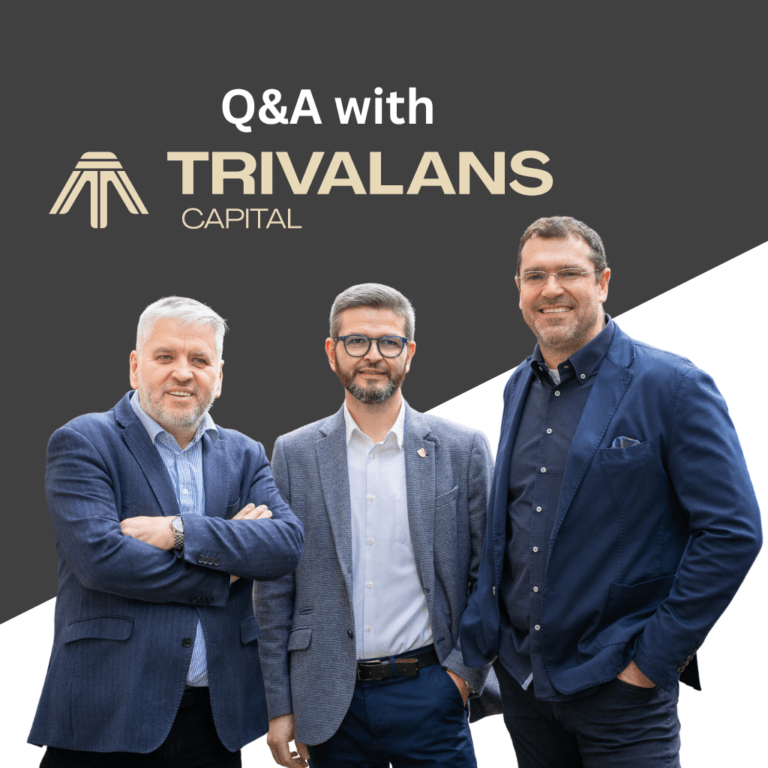
Team Dynamics
What backgrounds do Trivalans’ partners have that help them identify and capitalise on investment opportunities in Slovakia and the CEE region?
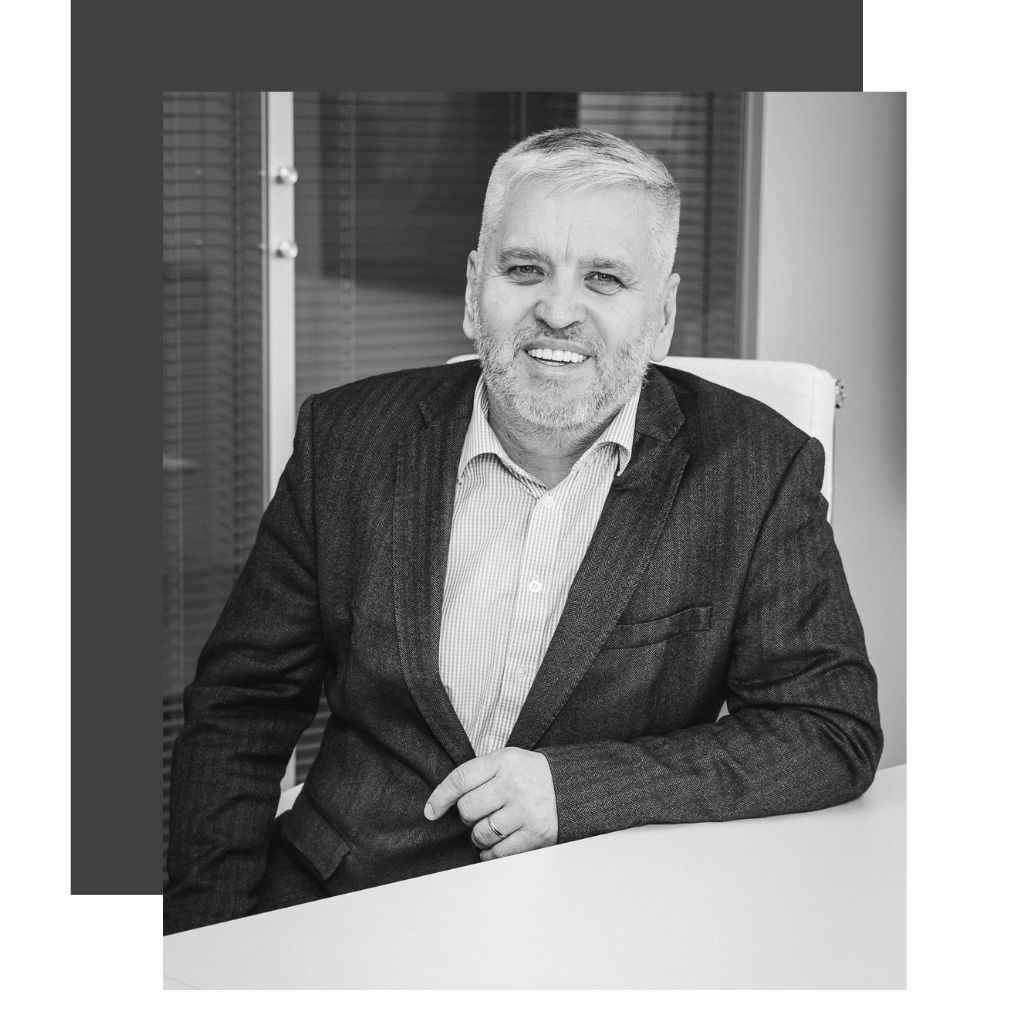
MF: After many years of corporate career in a blue chip multinational company (Nestle) I embarked on my interim management career and during those years I worked in a PE investment in a leading confectionery company in Serbia (Bambi).
I have worked probably in every country in the CEE region, so I know the region very well. Most of the time I worked in the Czech Republic, which is a natural location with a very similar tradition as in Slovakia. I was a GP at LMM fund Skylimit Industry investing in engineering companies.
However there are significant differences in the alternative investment environment and the Slovak PE is very underserved compared to Czechia. We see the opportunity here in Slovakia and after my return to Slovakia (for personal reasons) we decided to build the investment structure in Slovakia that will serve the LMM market.
Apart from investing in BPS Group, we have invested in a local leader in specialised sport retail – Kaktus Bike and we make it bigger with add on investments.
Outside of retail and professional services and IT, we plan to invest in manufacturing companies and the recycling industry.

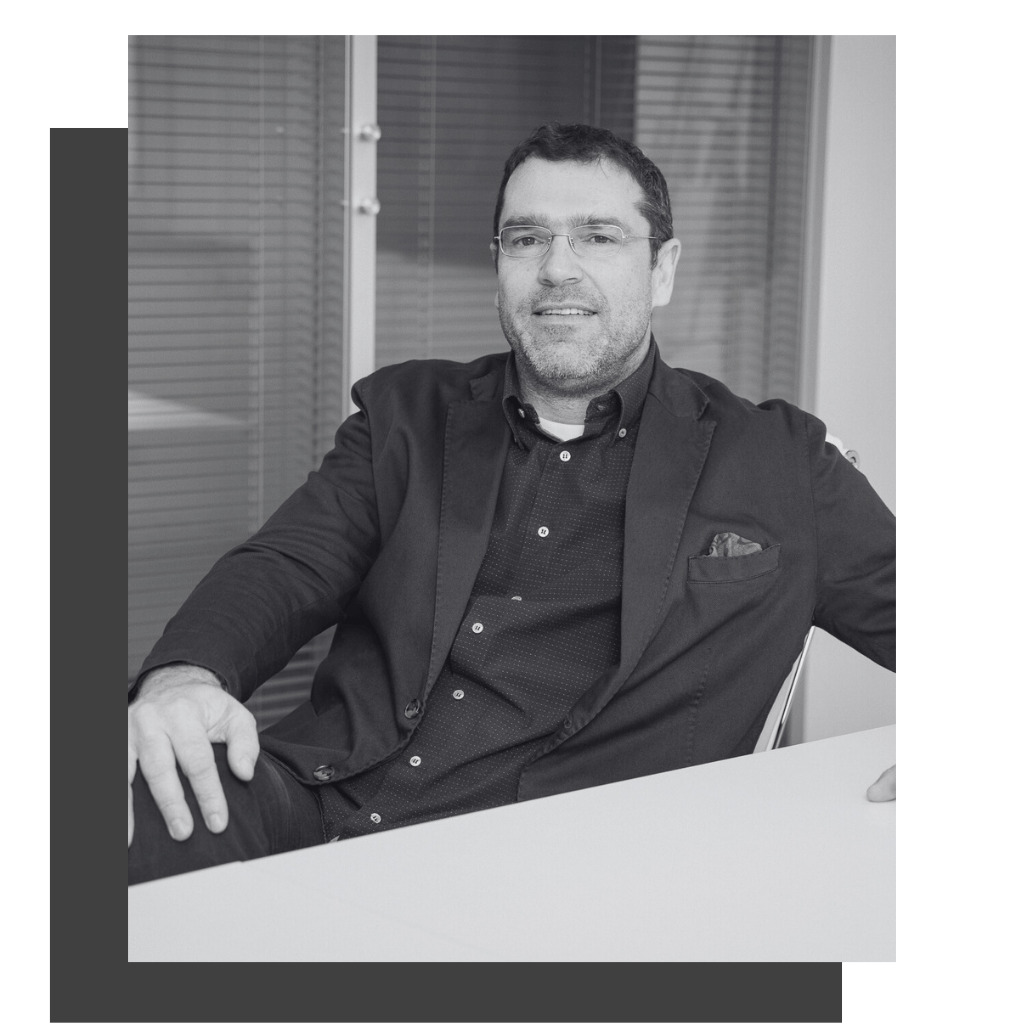
PSEB: Right after university I joined the Bratislava PWC office, one of the big 4, where I worked for 10 years as an Audit & Assurance professional and business consultant. I provided a wide spectrum of assurance and advisory services, including due diligence, valuations and forensic, in multiple industries as well as financial institutions.
In those years, during the economic transformation, I was assisting leading global players to establish their presence in Slovakia. I had participated in significant privatisation projects.
Just to name a few: Some commercial banks in Slovakia, U.S. Steel Košice – the largest integrated steel producer in Central Europe, Iron mill in Ostrava Vítkovice CR, Mondi SCP Ružomberok – the biggest integrated mill producing paper and pulp in the Slovak Republic, Slovak Electricity Power Plants, a special project for the Slovak Gas Industry in 2006, the biggest natural gas and electricity seller in Slovakia, nowadays Eustream, which was about the legal unbundling of international gas transmission from retail gas distribution.
My next long-term engagement was with SLAVIA CAPITAL Group, a private investment company. Here, I served as a business analyst. My responsibilities included optimising business processes, developing financial models for investment evaluation, managing operational improvements in portfolio companies, setting up internal systems for financial reporting, and preparing consolidated financial statements.
5 years ago I started cooperating with Pavol and Marian where we built upon Pavol’s work. Pavol had laid foundations of the accounting business some 10 years ago and grown it to a significant local provider of accounting services.
The three of us then carried on building the BPS Group to expand their financial services offering to include accounting, audit and tax consultancy. Since then, we have also added capacities in corporate finance advisory and M&A.
As a natural result of our consulting experience, Marian’s track record in fund management, increasing pipeline of opportunities, as well as the demand from our clients who wanted to invest with us, we decided to build Trivalans, an LMM PE Fund, as our next professional step.
I am very good with numbers, strict logic, and meticulous, detail-oriented work, with a strong focus on risk moderation and compliance. As a consequence, my contributions to the Fund include financial modelling, complex business analysis, data analysis of company fundamentals, project management, due diligence for acquisitions, managing reorganisations, and overseeing risk management and compliance.
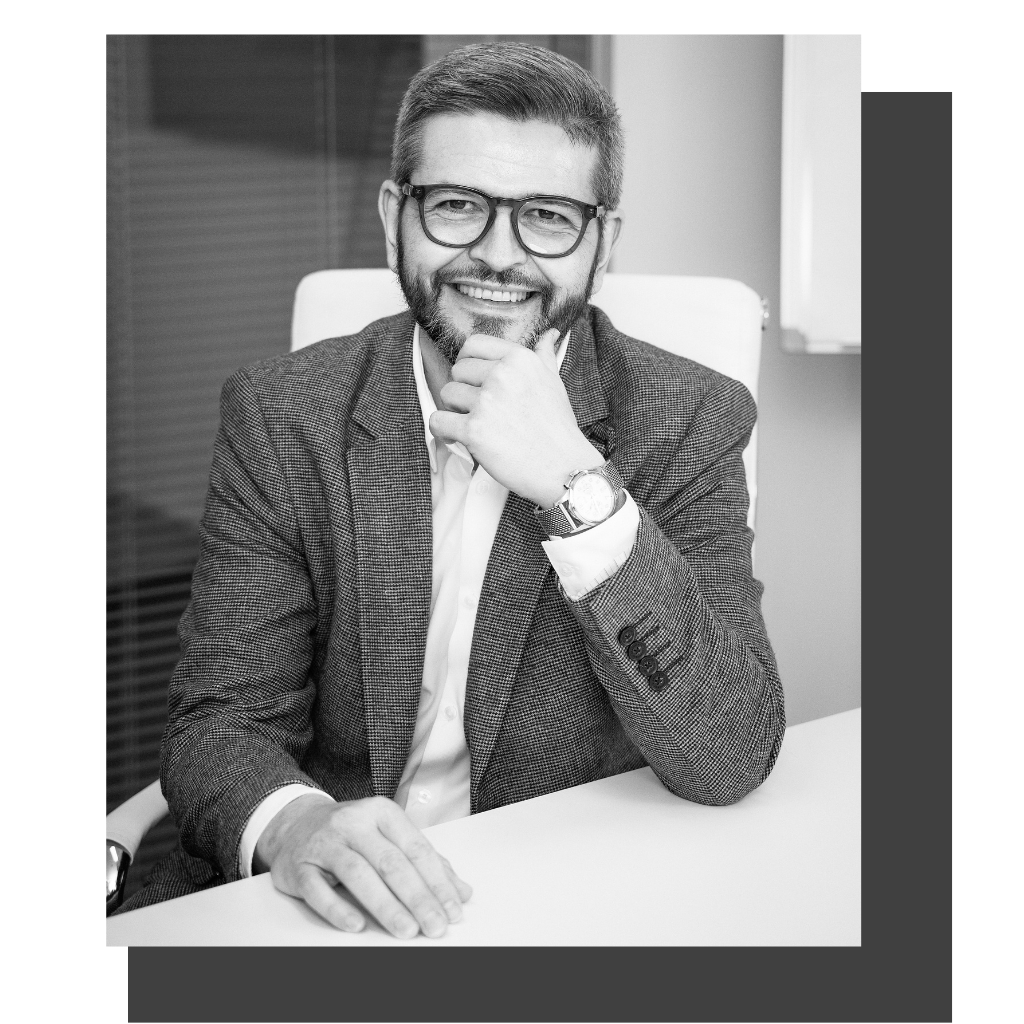
PSEK: I started my professional career in England working in the real-estate industry negotiating property lettings and sales as well as their appraisal.
Upon my return to Slovakia I joined IBM as a financial controller for CEE, Middle East and Africa region and later on budgeting and forecasting financial results of hardware streamline in Europe.
Afterwards I worked in the audit department of Grant Thornton.
My solo career started in 2007 incorporating Lansbrough Europe s.r.o. providing accounting, payroll services and, from 2012, statutory audit, tax and business advisory including valuations and M&A services.
BPS group started when setting up BPS Audit and BPS Tax in 2018 as an independent succession of Borzik & partners. At this time BPS group had around 40 employees with a turnover of EUR1,5m. Since then, three add-on investments more than doubled the size of BPS group, employing around 100 financial professionals and reaching a turnover of EUR3,4m across 4 offices in Slovakia.

Seeing our success story, more and more of our clients started asking us to help in either selling their business or finding an investor, as well as to help their growth strategy. This increasing demand sparked the creation of Trivalans as a professional investor mainly in Slovakia and the surrounding countries for the SME market.
In the Fund, my expertise that contributes to the mission of Trivalans lies in spotting opportunities, carefully mitigating risk and attracting the right mixture of people and investors.
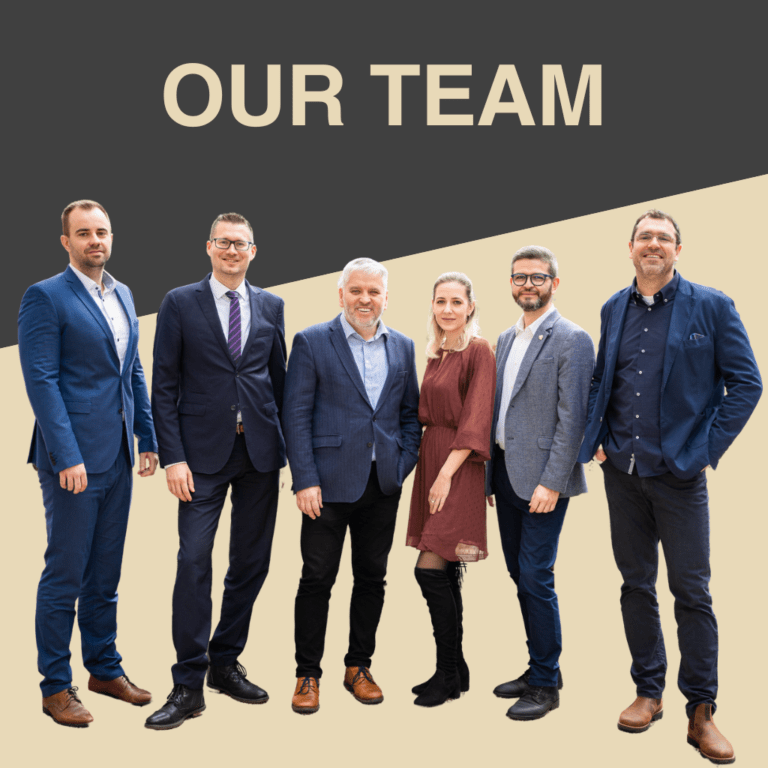
PSEK: The rest of the Trivalans team consists of seasoned financial professionals primarily from BPS Group, who are integral to the success of our fund strategy.
Currently, we have 2 associates, Pavol and Roman, who are fundamental to our operations, bringing robust financial expertise and professional experience in compliance, tax, and advisory.
Pavol, a certified tax advisor with nearly a decade of experience and a background at KPMG, specialises in managing the tax aspects and risks of our transactions.
Roman, with over 17 years in internal and external audit and certifications from significant institutions like BMB Leitner and BDR, contributes greatly to our investment structuring, identifying potential opportunities and mitigating risks.
Natalia, our professional valuator, focuses on target price evaluation, including industry and competition analysis, ensuring we make informed investment decisions.
Veronika handles the administrative aspects, ensuring everything is executed professionally and promptly.
As our fund continues to grow, we anticipate the need to expand our team, particularly in investment decision-making and value creation for our acquired assets. Our current team’s skills in deal sourcing, due diligence, portfolio management, and exit planning are vital to navigating the complexities of the investment process and driving the success of our fund.
Fund Strategy
What criteria does Trivalans use to assess potential investments in mid-market mature companies?
MF: At Trivalans, we focus on investing in mid-market mature companies that often fly under the radar of existing private equity structures in Slovakia. We target SMEs valued below €10 million, characterised by stable cash flow, consistent revenue generation, and potential for growth. Our investment criteria include well-established companies with a turnover of up to €20 million, a stable workforce, a diverse supplier and customer base, an exit strategy, and clear drivers for value creation such as succession planning, industry consolidation, the implementation of professional management, data-driven decision-making, and robust financial controls.
We aim to onboard around 10-12 well-run, mature businesses of comparable scale and quality, originating from successions, where we continue involving the founders. Our growth or repositioning strategy is a proactive and hands-on buy-and-build approach. We also look to leverage consolidation opportunities within the Slovak market to help our SMEs scale through add-on acquisitions, positioning them as attractive targets for larger PE players.
By focusing on sales growth, enhancing management quality, and initiating strategic changes, we believe significant value can be generated in our portfolio companies.

Regional Dynamics
In the current economic climate, which sectors in the Slovak market do you believe have the most growth potential, and how does Trivalans plan to capitalise on these opportunities?
PSEB: Slovakia is a manufacturing economy, however there is a strong IT sector and underserved environmental industry. We are particularly focused on areas such as near-shoring of manufacturing and services, which are likely to gain momentum due to the de-globalization trend. Additionally, the push towards green solutions leads us to consider the circular economy, particularly in recycling and energy sectors, emphasising savings, rationalisation, and green production, along with IT solutions and digitalization.
We are also particularly interested in sectors that focus on local sourcing while serving worldwide clients, including manufacturing, recycling, retail, and professional services. This strategic focus positions us to generate decent returns by tapping into these dynamic sectors.
Trivalans plans to capitalise on these opportunities by leveraging sector trends such as consolidation and cross-border integration, which are relevant given the higher fragmentation and smaller average company size in the region. This presents a greater potential for inorganic growth.
How does your fund plan to address the specific challenges and opportunities in the CEE mid-market ecosystem, including aspects like deal sourcing, competition, regulatory environment, and value creation?
PSEB: The CEE region has long been perceived as a hybrid market, attracting investors with its easy access to a large consumer base, lower entry costs, and a specialized workforce. However, this is balanced by a perception of higher risk and instability.
Slovakia represents an underserved territory for PE investments, with significant opportunities consisting in the availability of undervalued targets and a less mature deal market.
As previously mentioned, consolidation and cross-border integration are also key trends with a potential for inorganic growth, due to the small size of the region’s companies with higher fragmentation within sectors.
In terms of value creation, our fund is particularly focused on fostering SMEs poised for growth with a commitment to sustainable growth.
We do this in a number of ways:
Supplying growth capital by negotiating with banks for better access to credit, and optimizing capital structures.
Leading critical organizational projects, such as creating internal structures, establishing standard operating procedures, designing performance indicators, and managing cash flow.
Implementing transparent governance structures with tailored reporting standards and remuneration guidelines for greater accountability.
Enhancing quality in management, by professionalisation of management with industry expertise, and leveraging (former) owners expertise.
Providing support at the executive level in business strategies.
Initiating and leading change management.
Ongoing consolidation through building revenue synergies, minimizing expenses by implementing streamlined processes, and finding opportunities for economies of scale.
Implementing ESG & Sustainability goals by capitalizing on energy-saving and other green trends, such as solar energy, energy recuperation and recycling initiatives, and promoting the digitization of paper-based activities to reduce waste and enhance sustainability.
Our deal flow is mostly proprietary.
On the competition aspect, Trivalans responds to the still quite limited number of lower mid-market investors in Slovakia, Czechia, and CEE in general. While local players like Sandberg and non-local funds occupy a similar space, our lower average ticket sizes allow us to cater to an underrepresented segment with minimal competition, thus providing us a unique market positioning.
What are the two main challenges Trivalans expects in pursuing its vision, and what steps are being taken to mitigate these risks?
MF: Trivalans faces two main challenges as we implement our vision within the Slovak market.
The first challenge is the lack of a strong tradition in Slovakia in investing in PE assets. Potential target companies are more accustomed to using bank financing, and the concept of PE as a financing option is relatively new. To address this, we are focusing on raising awareness about the advantages of PE funds through education and sharing success stories, which helps illustrate the potential benefits to these companies.
The second challenge is related to the size of the Slovak market, which is relatively small, making it difficult for institutional investors to justify small investments. This is compounded by a tough fundraising environment where international investors are generally hesitant, and domestic investors prefer traditional ways of investing like term bank accounts or real estate funds.
To mitigate this, we have established strong connections with family offices, placement agents, and institutional investors. Our strategy includes targeting a relatively small and niche geography, which, combined with our relatively low target fund size and smaller ticket sizes, makes establishing a new PE fund in Slovakia feasible and allows us to cater to an underrepresented segment with minimal competition.
ESG
How does Trivalans incorporate ESG factors into its investment process, and what is your overall ESG strategy?
PSEK: We recognise that Implementing ESG is a must in the current environment and it creates value for shareholders.
Our fund has a clearly defined sustainability objective. We plan to allocate approximately one-third of our total investments to green projects. This can also be seen from our pipeline, where 30% of our portfolio may qualify as green investments.
The remaining capital will be deployed to businesses that, while they may not be directly involved in environmentally sustainable activities, either support sustainable activities through their products and services or are actively reducing their environmental footprint in alignment with COP targets. This strategic allocation positions us towards becoming an SFDR Article 8 compliant fund as we actively promote environmental and social objectives in our investment and portfolio management policy.
Furthermore, we are committed to setting up transparent governance in our financial processes and management structures to facilitate expansion. Our focus on implementing energy-saving solutions, digitalization, and new technologies with smaller environmental footprints will help to save resources, expedite processes, and give us flexibility vis-à-vis our competitors.
By focusing on long-term sustainability growth, we are better positioned to align with the right investors for successful exits, ensuring that our investments not only yield financial returns but also contribute positively to societal goals.
